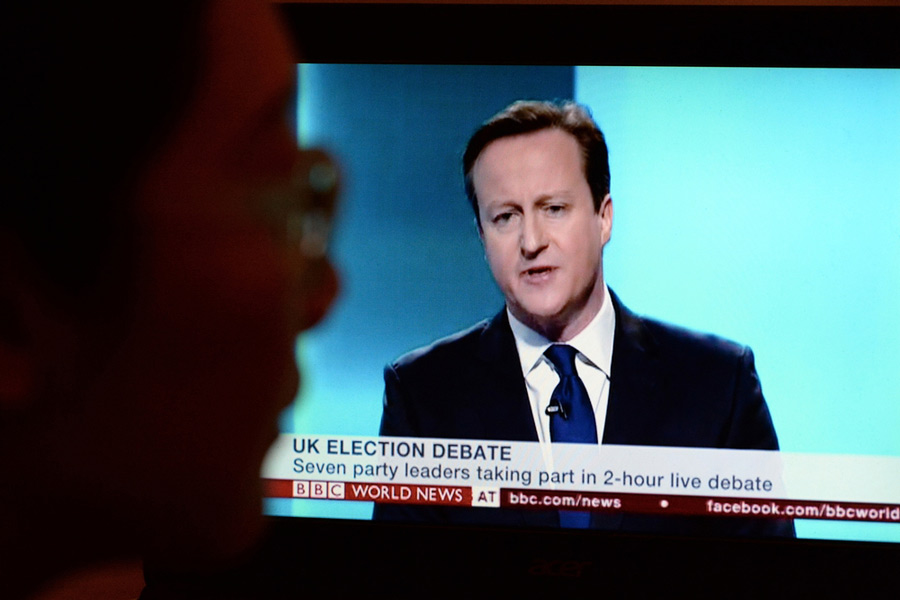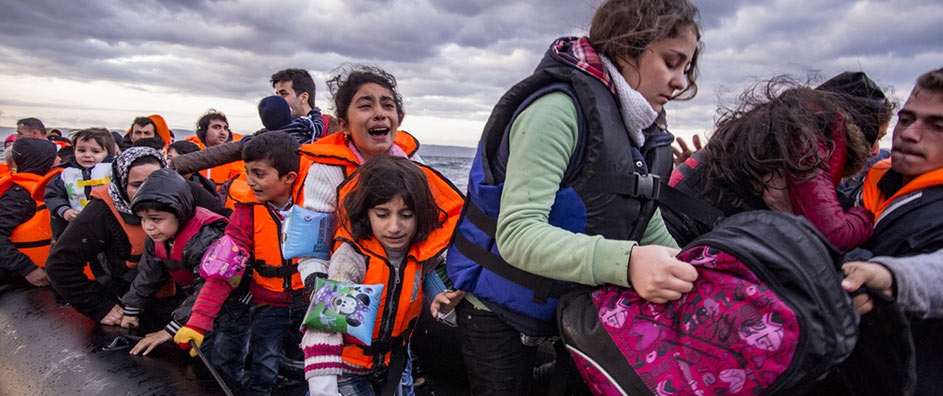The views expressed in our content reflect individual perspectives and do not represent the authoritative views of the Baha'i Faith.
Does an open global economy imply the uncontrolled mass migration of people?
So far, it definitely seems that way, doesn’t it?
The recent Brexit vote in the UK hinged largely on this question. When the UK joined the EU, it agreed to accept free movement of other EU citizens across its borders, and gave up strict nationalistic controls on European immigration. As a consequence of its EU membership and its relaxed immigration laws for other non-EU countries like India and Pakistan, Great Britain’s foreign-born population rose dramatically in two decades, from 3.8 million people to 8.3 million.
This gradually made Britons more and more nervous. Initially, the UK welcomed migrants, because its birthrate had fallen past replacement levels, and it lacked the labor force to fill its jobs. But then the 2008 global financial crisis hit, and job creation ground to a virtual halt. Suddenly immigrants competed with native Brits for work—and many immigrants worked for less. The unemployment rate rose. The UK’s National Health Service (NHS) began to lose large amounts of money, and other social welfare programs showed signs of strain. In the same way it has happened at many times and in many places in the past, an anti-immigrant backlash began.
Nativist politicians saw the backlash, and latched onto it. They blamed the EU itself, and the migrants particularly. Then the civil war in Syria broke out, and the American/proxy wars in Afghanistan and Iraq intensified, and millions of people fled to Europe. ISIS formed, expanded and attacked. Even though countries like Germany and Sweden agreed to accept the overwhelming bulk of the refugees those terrible wars produced, and the UK has taken approximately 4300 Syrian refugees to date, the “leave the EU” forces used scary images of streaming hordes of refugees in their anti-EU campaign. That fear campaign succeeded.

Those fears do have some substance, however. The United Nations recently estimated that 65 million people have now become involuntary migrants or refugees, more than the world has ever seen before. Wars and regional conflicts, hunger and mass starvation, ethnic cleansing and genocide, criminal gang cultures and the inability to work—they all contribute to the unprecedented mass migrations we’ve witnessed in the recent past. These huge numbers of refugees fleeing their native countries have presented the world with a hard question: Does an open world mean mass migration?
Almost everyone from every political persuasion—elected officials, policymakers, economists, planners, futurists, human rights experts and foreign policy specialists—agrees that an open world functions better than a closed one. Hardened borders, stiff trade tariffs, heavily-militarized adjoining countries, restrictions on the movement of goods, services, capital and people all contribute to a much poorer, more sluggish and highly dysfunctional global economy. When trade, capital and human resources can freely move about the planet, the world has amply demonstrated, things simply work better.
That leads most thoughtful observers and participants to one inescapable conclusion: the world must find a way to implement a global system of governance, which has the power to regulate and control the flow of refugees and migrants—and to stop the crises and wars that cause such devastating forced migrations in the first place.
Focused on both the symptom and the cure, a global authority with real enforcement abilities could immediately cut off the flow of goods, money and resources to belligerent nations, forcing them to cease hostilities and civil wars. It could reinforce the rule of international law by bringing about a process of negotiation and consultation to resolve differences. It could settle longstanding disputes among conflictive nations and entirely eliminate the horrible scourge of war. It could regulate and rationally control the migration of the world’s people, taking care to protect the human rights of refugees as well as the rights of those in their host countries. It could, if we build it, deliver the long-awaited unified global future of humanity the poets and prophets have dreamed of since the beginning of time:
Unification of the whole of mankind is the hall-mark of the stage which human society is now approaching. Unity of family, of tribe, of city-state, and nation have been successively attempted and fully established. World unity is the goal towards which a harassed humanity is striving. Nation-building has come to an end. The anarchy inherent in state sovereignty is moving towards a climax. A world, growing to maturity, must abandon this fetish, recognize the oneness and wholeness of human relationships, and establish once for all the machinery that can best incarnate this fundamental principle of its life…
National rivalries, hatreds, and intrigues will cease, and racial animosity and prejudice will be replaced by racial amity, understanding and cooperation. The causes of religious strife will be permanently removed, economic barriers and restrictions will be completely abolished, and the inordinate distinction between classes will be obliterated. Destitution on the one hand, and gross accumulation of ownership on the other, will disappear. The enormous energy dissipated and wasted on war, whether economic or political, will be consecrated to such ends as will extend the range of human inventions and technical development, to the increase of the productivity of mankind, to the extermination of disease, to the extension of scientific research, to the raising of the standard of physical health, to the sharpening and refinement of the human brain, to the exploitation of the unused and unsuspected resources of the planet, to the prolongation of human life, and to the furtherance of any other agency that can stimulate the intellectual, the moral, and spiritual life of the entire human race. – Shoghi Effendi, The World Order of Baha’u’llah, pp. 202-203.
You May Also Like
Comments

















war or persecution, or seeking
a livelihood. Of course, a global
governing body could set limits on
movement. However, if peace and
"freedom from want" prevailed in
each region, and to an equal degree
among all regions, the incentive for
movement would tend to disappear
on its own. I think of the present
situation as water seeking its own
level, air filling a vacuum, or electricity flowing until its energy
is spent: stability eventually occurs,
one way or another. I think our job
is to bring it about with ...the least
human suffering!